Filter by
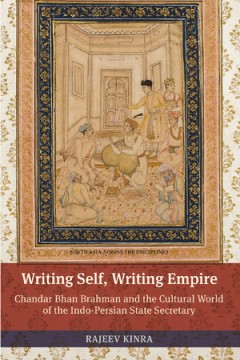
Writing Self, Writing Empire : Chandar Bhan Brahman and the Cultural World of…
Writing Self, Writing Empire examines the life, career, and writings of the Mughal state secretary, or munshi, Chandar Bhan Brahman (d. ca. 1670), one of the great Indo-Persian poets and prose stylists of early modern South Asia. Chandar Bhan’s life spanned the reigns of four emperors: Akbar (1556–1605), Jahangir (1605–1627), Shah Jahan (1628–1658), and Aurangzeb ‘Alamgir (1658–1707…
- Edition
- -
- ISBN/ISSN
- 9780520961685
- Collation
- -
- Series Title
- South Asia across the disciplines
- Call Number
- 891.551 2 KIN w
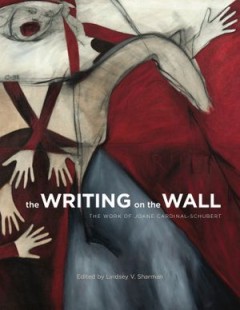
The Writing on the Wall : The Work of Joane Cardinal-Schubert
Artist. Activist. Curator. Joane Cardinal-Schubert was a phenomenal talent. Her work recognizes the social and political ramifications of lived Indigenous experience, exposing truths about history, culture, and the contemporary world. She was a teacher and mentor, supporting those who struggle against the legacies of colonial history. She was an activist for Indigenous sovereignty, advocating f…
- Edition
- -
- ISBN/ISSN
- 978-1-55238-950-8
- Collation
- -
- Series Title
- -
- Call Number
- 759.11 WRI
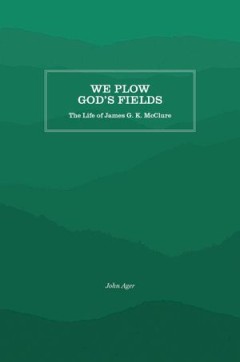
We Plow God's Fields : The Life of James G.K. McClure
This biography explores the life of James G. K. McClure, Jr., and his vision for a better life in the mountains of North Carolina. At his prompting, and under his leadership, The Farmers Federation was founded in Fairview, North Carolina, in 1920.
- Edition
- -
- ISBN/ISSN
- 978-1-4696-4200-0
- Collation
- -
- Series Title
- -
- Call Number
- 926.3 AGE l
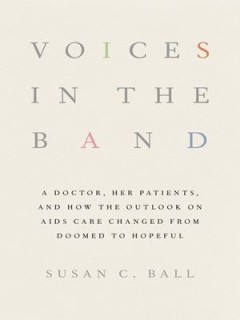
Voices in the Band : A Doctor, Her Patients, and How the Outlook on AIDS Care…
"I am an AIDS doctor. When I began that work in 1992, we knew what caused AIDS, how it spread, and how to avoid getting it, but we didn't know how to treat it or how to prevent our patients' seemingly inevitable progression toward death. The stigma that surrounded AIDS patients from the very beginning of the epidemic in the early 1980s continued to be harsh and isolating. People looked askance …
- Edition
- -
- ISBN/ISSN
- 9780801455414
- Collation
- -
- Series Title
- -
- Call Number
- 926.1 BAL v
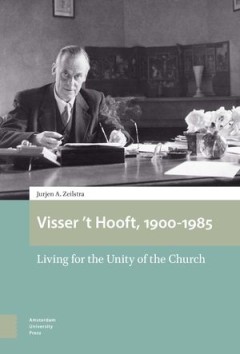
Visser ’t Hooft, 1900-1985 : Living for the Unity of the Church
God's diplomat, the pope of the ecumenical movement, but also an acerbic theologian and a difficult person: this is how journalists characterised Willem Adolf Visser 't Hooft (1900-1985). He was one of the best-known Dutch theologians outside the Netherlands and he left his mark on the world church. Even at an early age he made profound efforts in support of international ecumenical youth and s…
- Edition
- -
- ISBN/ISSN
- 978 90 4855 187 3
- Collation
- -
- Series Title
- -
- Call Number
- 922.1 ZEI v
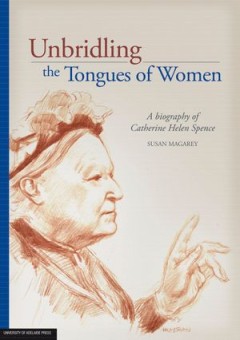
Unbridling the Tongues of Women : A Biography of Catherine Helen Spence
Originally published in 1985, this revised edition with an updated Introduction, is being published by the University of Adelaide Press to commemorate the anniversary of Catherine Helen Spence's death on 3 April 1910. Catherine Helen Spence was a charismatic public speaker in the late nineteenth century, a time when women were supposed to speak only at their own firesides. In challenging the cu…
- Edition
- -
- ISBN/ISSN
- 978-0-9806723-0-5
- Collation
- -
- Series Title
- -
- Call Number
- 809.509 2 MAR u
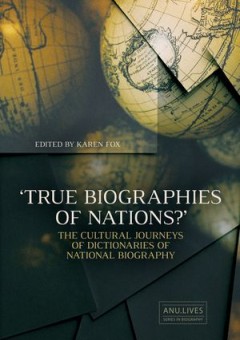
True Biographies of Nations? : The Cultural Journeys of Dictionaries of Natio…
Dictionaries of national biography are a long-established and significant genre of biographical and historical writing, existing in many forms across the globe. This book brings together practitioners from around the English‑speaking world to reflect on national biographical dictionary projects’ recent cultural journeys, and the challenges presented to them by such developments as the trans…
- Edition
- -
- ISBN/ISSN
- 9781760462758
- Collation
- -
- Series Title
- -
- Call Number
- 920 TRU
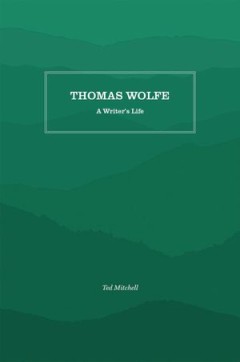
Thomas Wolfe : A Writer's Life
The first novelist from North Carolina to become an influential voice in American literature, Thomas Wolfe was an imaginative and persuasive fictional writer. Hailing from Asheville, North Carolina, Thomas Wolfe is best known for his vivid portrayal of life in the mountains during the twentieth century. Published in 1999, Thomas Wolfe: A Writer’s Life explores Wolfe’s life and career spanni…
- Edition
- -
- ISBN/ISSN
- 978-1-4696-3812-6
- Collation
- -
- Series Title
- -
- Call Number
- 809.309 2 MIT t
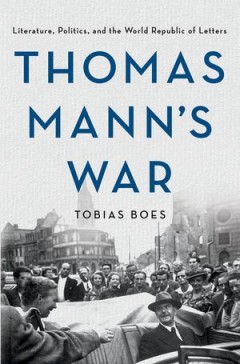
Thomas Mann's War : Literature, Politics, and the World Republic of Letters
In Thomas Mann's War, Tobias Boes traces how the acclaimed and bestselling author became one of America's most prominent anti-fascists and the spokesperson for a German cultural ideal that Nazism had perverted.Thomas Mann, winner of the 1929 Nobel Prize in literature and author of such world-renowned novels as Buddenbrooks and The Magic Mountain, began his self-imposed exile in the United State…
- Edition
- -
- ISBN/ISSN
- 9781501745010
- Collation
- -
- Series Title
- -
- Call Number
- 809.309 2 BOE t

Theologian of Sin and Grace : The Process of Radicalization in the Theology o…
The Croatian-born Matthias Flacius Illyricus (1520–1575) was a Lutheran theologian and reformer who spent most of his adult life in the German-speaking territories of the Holy Roman Empire, playing an important role within the Evangelical churches and in the confessionalization of his day. Luka Ili? establishes that Flacius’ theology became increasingly radicalized with time and examines as…
- Edition
- -
- ISBN/ISSN
- 978-3-666-10117-5
- Collation
- -
- Series Title
- -
- Call Number
- 230.092 092 ILI t
 Computer Science, Information & General Works
Computer Science, Information & General Works  Philosophy & Psychology
Philosophy & Psychology  Religion
Religion  Social Sciences
Social Sciences  Language
Language  Pure Science
Pure Science  Applied Sciences
Applied Sciences  Art & Recreation
Art & Recreation  Literature
Literature  History & Geography
History & Geography